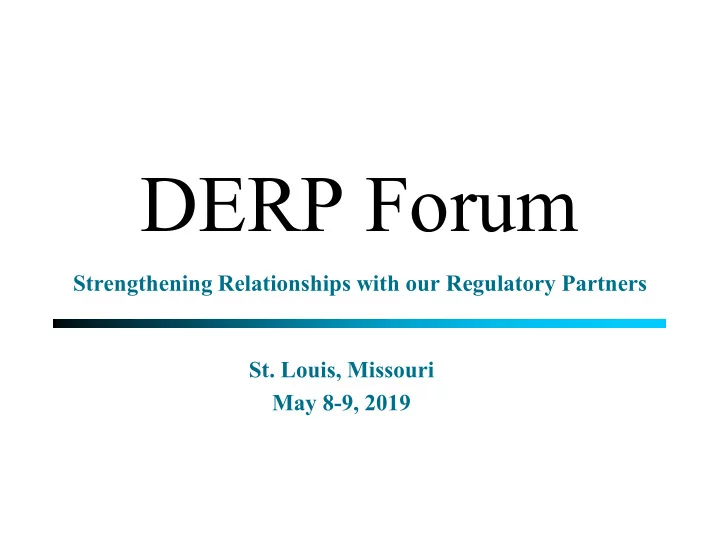

DERP Forum Strengthening Relationships with our Regulatory Partners St. Louis, Missouri May 8-9, 2019
Cal-EPA Unified Approach for Evaluating Vapor Intrusion (Supplemental Guidance) Defense Environmental Restoration Program Forum Dan Gallagher Department of Toxic Substances Control California Environmental Protection Agency May 9, 2019
California Vapor Guidance Documents Site Characterization Advisory – Active Soil Gas Investigations (2003, 2012, 2015) Evaluation of Vapor Intrusion Risk 1) Interim Final Guidance for the Evaluation and Mitigation of Subsurface Vapor Intrusion to Indoor Air (2005, 2011) 2) Interim Framework for Assessment of Vapor Intrusion at TCE- Contaminated Sites in the San Francisco Bay Region (2014) Mitigate Indoor Air Exposure Vapor Intrusion Mitigation Advisory (2009, 2011) Remediation of Vapor Source Remediation of Chlorinated Public Participation VOCs in Vadose Zone Soil (2010) Public Participation Strategy for Vapor Intrusion Sites (2011)
Four Step Process Step 1: Build CSM and Prioritize Buildings Step 2: Screening with Soil Gas Step 3: Indoor Air Investigation Step 4: Risk Management Decisions
Soil Gas Sampling VOC SOURCE
Screening with Soil Gas Data 1. Each building should have a soil gas probe, located on the side nearest the source 2. Place the soil gas probe close to the building 3. Collect soil gas samples from two depths: • Near the contaminant source • Half-way between source and ground surface 4. Sample the soil gas twice to evaluate seasonality
Indoor Air Sampling
Indoor Air Investigations 1. Co-located indoor air and subslab at: • Location of occupants • Slab penetrations • Near the release area 2. Three or more locations recommended 3. Long sampling duration (passive?) 4. Collect other lines of evidence: cross slab pressure and sewers samples
Indoor Air Investigation Estimate Risk and Hazard Using Indoor Air Concentration Repeat Indoor Air NO Manage YES Risk ≥ 1x10 -6 Sampling: • or HI ≥ 1 Exposure 2+ event • Different Seasons YES Risk ≥ 1x10 -6 • HVAC on/off or HI ≥ 1 NO Low VI Priority Building
Sewer Sample Locations VENTS CLEANOUTS MANHOLES MAIN
Recommend
More recommend